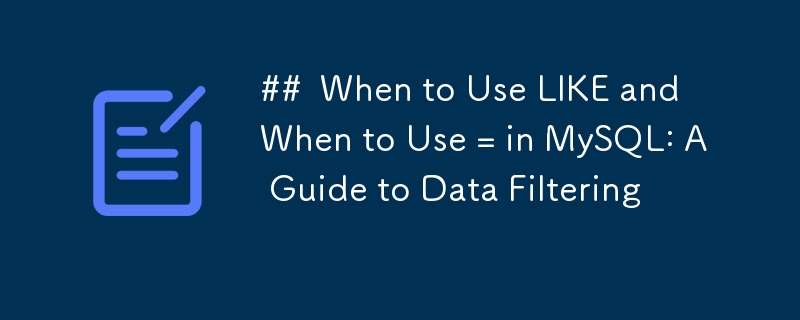<?php
class mysafe{
public $logname;
public $isshwomsg;
function __construct(){
set_error_handler('MyError',E_ALL);
//-----
}
function MyError($errno, $errstr, $errfile, $errline){
echo "<b>Error number:</b> [$errno],error on line $errline in $errfile<br />";
exit;
}
function wlog($logs){
if(empty($logname)){
$this->logname=$_SERVER["DOCUMENT_ROOT"]."/log.htm";
}
$Ts=fopen($this->logname,"a+");
fputs($Ts,$logs."\r\n");
fclose($Ts);
}
function showmsg($msg='',$flag=false){
$this->isshwomsg=empty($this->isshwomsg) ? false : true;
if ($this->isshwomsg) {
echo '<br />--------------------------------------<br />';
echo $msg;
echo '<br />--------------------------------------<br />';
if ($flag) exit;
}This is a PHP parameter and data filtering class. For data security, filtered data must be used before it can be used.
All resources on this site are contributed by netizens or reprinted by major download sites. Please check the integrity of the software yourself! All resources on this site are for learning reference only. Please do not use them for commercial purposes. Otherwise, you will be responsible for all consequences! If there is any infringement, please contact us to delete it. Contact information: admin@php.cn
Related Article
 Filtering Data Client-Side: Comparing CSS, jQuery, and React
Filtering Data Client-Side: Comparing CSS, jQuery, and React
16 Apr 2025
Say you have a list of 100 names:
 Laravel Eloquent: Implement conditional loading and filtering of associated data
Laravel Eloquent: Implement conditional loading and filtering of associated data
25 Jul 2025
In relational databases, it is not supported to directly define "conditional foreign keys" to implement foreign key constraints based on specific values. However, at the application layer, we can flexibly implement conditional loading and filtering of associated data through query builders (such as LaravelEloquent), thereby achieving a "conditional connection" effect. This article will introduce in detail how to use the with method and its closure parameters in LaravelEloquent, conditional filtering of the association model, and how to use whereHas to filter the main model.
 Applying WHERE and HAVING Clauses for Filtering Data in MySQL
Applying WHERE and HAVING Clauses for Filtering Data in MySQL
31 Jul 2025
The core difference between WHERE and HAVING is the filtering timing: 1. WHERE filters rows before grouping, which are used to exclude original records that do not meet the conditions; 2. HAVING filters the aggregate results after grouping, which are used to filter groups that meet the conditions. For example, when querying active employees, use WHEREstatus='active', and when screening department users exceed 5, use HAVINGemployee_count>5; the two can also be used in combination, first reduce the amount of data through WHERE, and then filter the aggregated results through HAVING. For example, first filter full-time employees and then filter departments with an average salary of more than 60,000. Correct use of both can improve query efficiency and accuracy.
 Advanced conditional query and filtering of relational data in MySQL/Laravel
Advanced conditional query and filtering of relational data in MySQL/Laravel
25 Jul 2025
This article aims to explore how to use EloquentORM to perform advanced conditional query and filtering of associated data in the Laravel framework to solve the need to implement "conditional connection" in database relationships. The article will clarify the actual role of foreign keys in MySQL, and explain in detail how to apply specific WHERE clauses to the preloaded association model through Eloquent's with method combined with closure functions, so as to flexibly filter out relevant data that meets the conditions and improve the accuracy of data retrieval.
 Implement associated data query and filtering under complex conditions in Laravel Eloquent
Implement associated data query and filtering under complex conditions in Laravel Eloquent
23 Jul 2025
This article will explore in-depth how to implement flexible conditional association queries through the powerful functions of the application layer (especially LaravelEloquent) when standard foreign key constraints cannot meet the data association requirements under complex conditions in relational databases such as MySQL. We will focus on how to use Eloquent's preloading (eagerloading) to cooperate with conditional constraints to efficiently retrieve and filter out related data that conforms to specific business logic, so as to achieve behavior similar to "conditional foreign keys" without modifying the database structure.
 When to Use LIKE and When to Use = in MySQL: A Guide to Data Filtering
When to Use LIKE and When to Use = in MySQL: A Guide to Data Filtering
01 Nov 2024
Understanding the Nuances of LIKE and = in MYSQLIn MySQL, the LIKE and = operators play crucial roles in filtering data. While both are used for...


Hot Tools

PHP library for dependency injection containers
PHP library for dependency injection containers

A collection of 50 excellent classic PHP algorithms
Classic PHP algorithm, learn excellent ideas and expand your thinking

Small PHP library for optimizing images
Small PHP library for optimizing images




